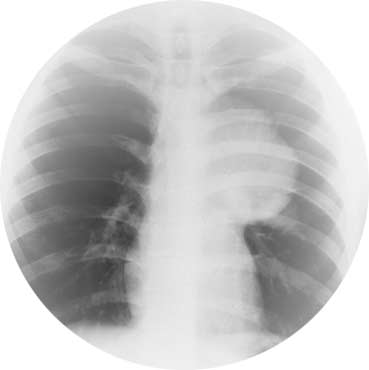Background
Stage IIIB non-small-cell lung cancer (NSCLC) is usually thought to be unresectable, and is managed with chemotherapy with or without radiotherapy. However, selected patients might benefit from surgical resection after neoadjuvant chemotherapy and radiotherapy. The aim of this multicentre, phase II trial was to assess the efficacy and toxicity of a neoadjuvant chemotherapy and radiotherapy followed by surgery in patients with technically operable stage IIIB NSCLC.
Methods
Between September, 2001, and May, 2006, patients with pathologically proven and technically resectable stage IIIB NSCLC were sequentially treated with three cycles of neoadjuvant chemotherapy (cisplatin with docetaxel), immediately followed by accelerated concomitant boost radiotherapy (44 Gy in 22 fractions) and definitive surgery. The primary endpoint was event-free survival at 12 months. Efficacy analyses were done by intention to treat. This trial is registered with ClinicalTrials.gov, number NCT00030810.
Findings
46 patients were enrolled, with a median age of 60 years (range 28—70). 13 (28%) patients had N3 disease, 36 (78%) had T4 disease. All patients received chemotherapy; 35 (76%) patients received radiotherapy. The main toxicities during chemotherapy were neutropenia (25 patients [54%] at grade 3 or 4) and febrile neutropenia (nine [20%]); the main toxicity after radiotherapy was oesophagitis (ten patients [29%]; nine grade 2, one grade 3). 35 patients (76%) underwent surgery, with pneumonectomy in 17 patients. A complete (R0) resection was achieved in 27 patients. Peri-operative complications occurred in 14 patients, including two deaths (30-day mortality 5·7%). Seven patients required a second surgical intervention. Pathological mediastinal downstaging was seen in 11 of the 28 patients who had lymph-node involvement at enrolment, a complete pathological response was seen in six patients. Event-free survival at 12 months was 54% (95% CI 39—67). After a median follow-up of 58 months, the median overall survival was 29 months (95% CI 16·1—NA), with survival at 1, 3, and 5 years of 67% (95% CI 52—79), 47% (32—61), and 40% (24—55).
Interpretation
A treatment strategy of neoadjuvant chemotherapy and radiotherapy followed by surgery is feasible in selected patients. Toxicity is considerable, but manageable. Survival compares favourably with historical results of combined treatment for less advanced stage IIIA disease.
|




